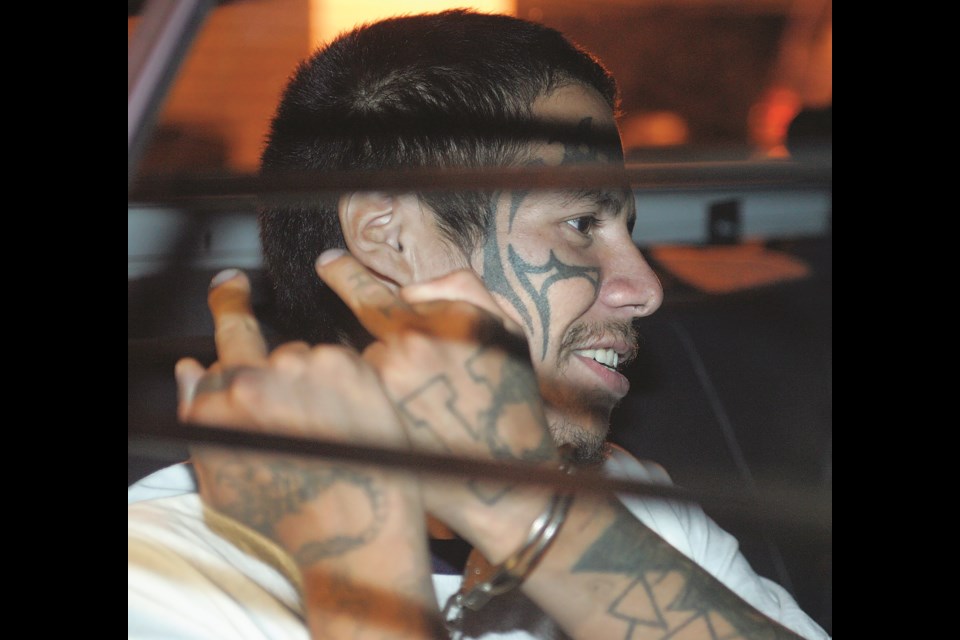BRITISH COLUMBIA – A man convicted of a horrific sexual assault in Banff in 2005 was denied an application by the Supreme Court of British Columbia that his rights had been violated as a prisoner.
Albert Muckle, a dangerous offender who has had multiple parole attempts dismissed in the last 11 years, claimed his rights had been violated and his Canadian Charter of Rights and Freedom had been breached.
Muckle applied for habeas corpus relief, meaning he was asking the courts to justify why he was being detained.
The hearing, which took place in September in Chilliwack, B.C., had Justice Shelley Fitzpatrick stating in her decision that Muckle’s claims were “far-ranging and often difficult to discern in terms of the legal issues raised and the facts upon which he relies.”
Muckle represented himself and Fitzpatrick highlighted “he has struggled in the past and continues to struggle to address the various legal issues he wishes to raise in respect of his circumstances.”
The Attorney General of Canada opposed the relief application, saying it was “ill-founded” and he was unable to provide information that his liberty had been deprived.
The Attorney General’s office argued the Supreme Court of British Columbia not only lacked jurisdiction for the application, but Muckle had “failed to establish … that there has been a deprivation of liberty that could be unlawful.”
Fitzpatrick found Muckle had been given due process and his attempt “to challenge his conviction and sentence are not appropriate.”
She noted his status as a dangerous offender “is legal and valid” and that there has been no change in his sentence.
Muckle also attempted to claim both the Parole Board of Canada and Corrections Services Canada had inaccuracies in their records for him, with his brother Edward’s records being mixed with his.
Fitzpatrick found Muckle had “not provided any further details as to how he came to this belief” and he had a lack of evidence for the allegation.
The Parole Board of Canada denied Muckle’s attempt for full or day parole in October 2022, due to him being a “very high risk of violent re-offending and an above-average risk of sexually re-offending."
At the time, the parole board noted he had been involved in more than 70 security incidents since 2009.
An attempt to appeal the parole board’s decision was unsuccessful last May, with the appeal division finding Muckle had “not raised any grounds that would cause it to intervene in the board’s decision.”
Muckle had taken part in an initial elder review in 2013, but both the parole board and appeal division found he wasn’t working with either elders of Indigenous liaison officers.
Muckle is from the Whitedog (Wabaseemong) First Nation Reserve, about 120 kilometres northwest of Kenora, Ont. and just east of the Ontario-Manitoba border.
According to a previous review of facts by the parole board, in 2005 Muckle met Julianne Courneya and her male friend when they were out for a farewell party for a co-worker near the former Aurora nightclub on Banff Avenue. The three smoked a cigarette together and Courneya’s male friend went to use an ATM and when he returned, he saw Muckle and Courneya walking away.
The two went to Central Park, sitting at a picnic table, but when Courneya went to leave Muckle grabbed her and pulled her to the ground. She was knocked unconscious and dragged by Muckle into the bushes near the Bow River.
He stole $20 from her purse, left in an attempt to find drugs, returned and raped her twice and attempted to strangle her with her purse strap.
Courneya was found the next morning and Muckle was arrested by RCMP when he was attempting to leave Banff. He told police he had been using alcohol and crystal meth.
At the time of the sexual assault, the 21-year-old Courneya was six weeks pregnant and engaged. Courneya, who was a worker at the Rimrock Resort Hotel, later lost the baby due to the assault.
He was given dangerous offender status in 2006, which carries an indefinite prison sentence with no specific release date. He can still be considered for parole.
Muckle has been denied parole since making a first attempt in 2012 and previously unsuccessfully appealed the dangerous offender status in 2012. He also filed an unsuccessful notice of appeal to the Alberta Court of Appeal in 2012 and attempted a similar leave to appeal to the Supreme Court of Canada in 2014, which was dismissed in 2015.
Prior to his guilty plea in 2005, Muckle had served four years in prison for stabbing a cab driver twice in the 1990s and was also involved in a prison riot.
Muckle was held at the Kent Institution in British Columbia until 2021 when was transferred to an unknown medium security facility in British Columbia.
“Mr. Muckle has failed to articulate any factual basis which might relate to the alleged unlawfulness of his continued detention,” Fitzpatrick found in her decision. “In short, Mr. Muckle has failed to discharge his onus of demonstrating any deprivation of liberty that could be unlawful that is necessary to ground a habeas corpus application. No issues of cruel and unusual treatment or punishment arise [under the charter].”



